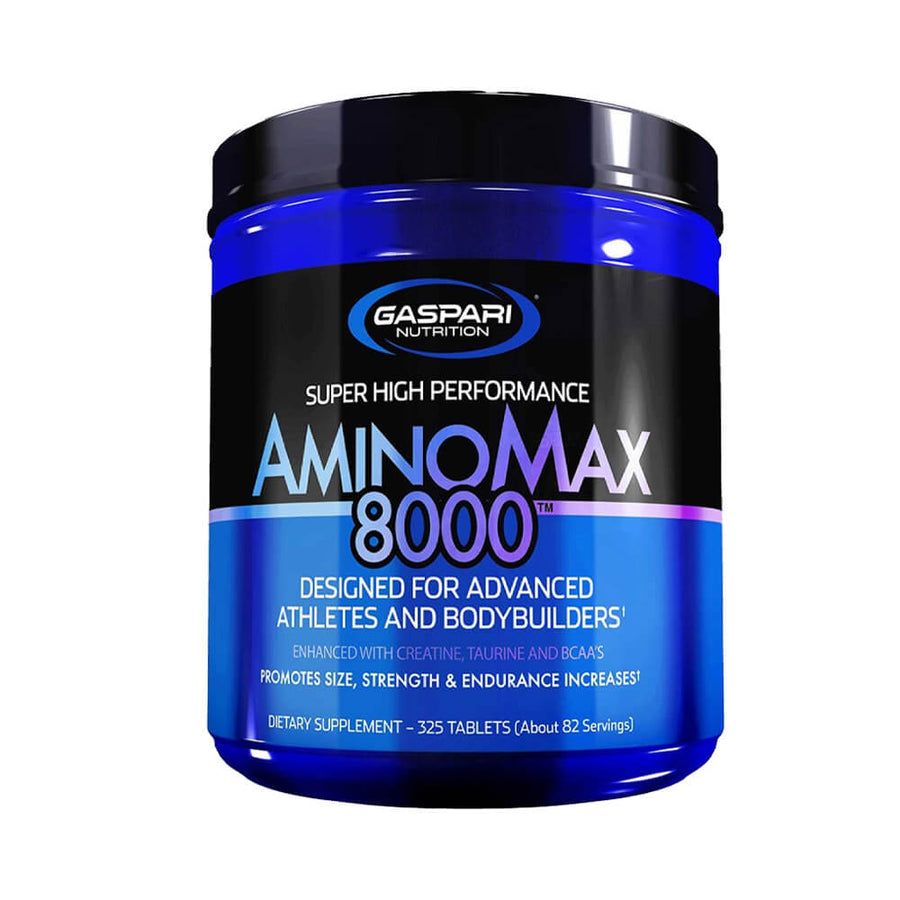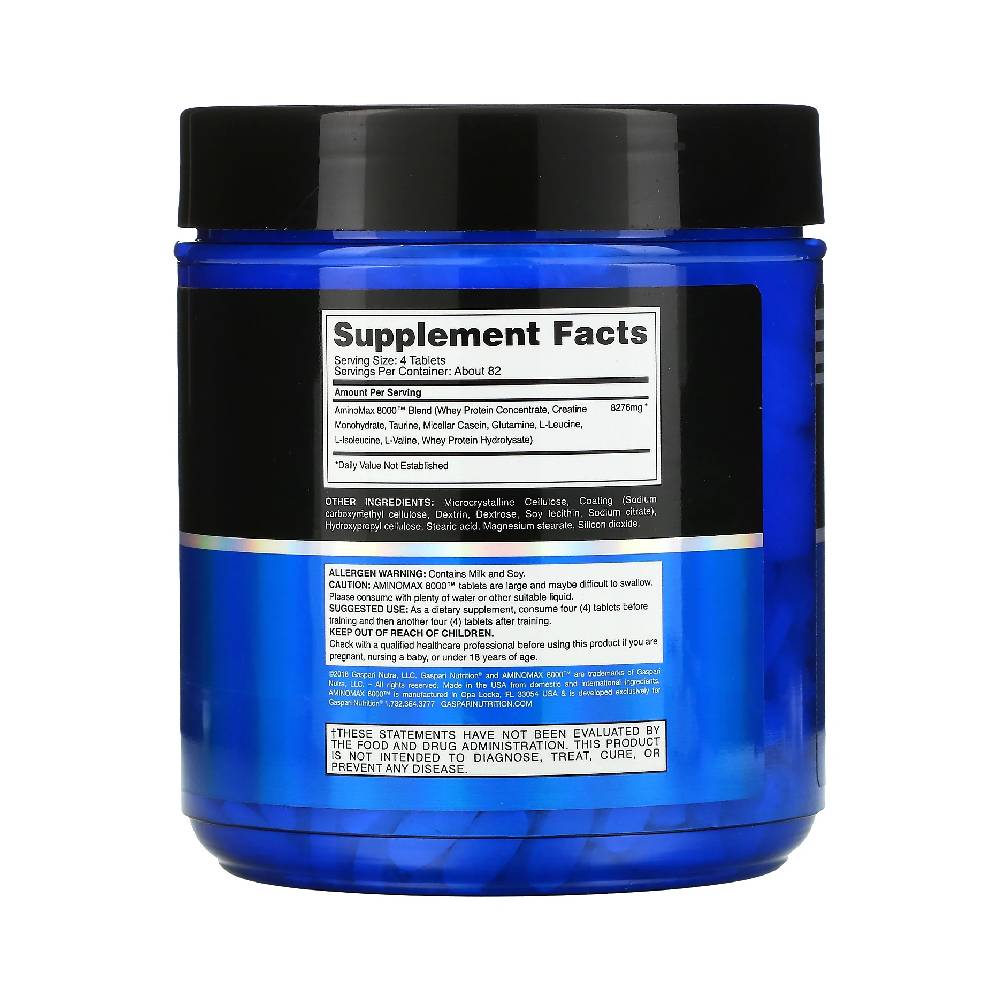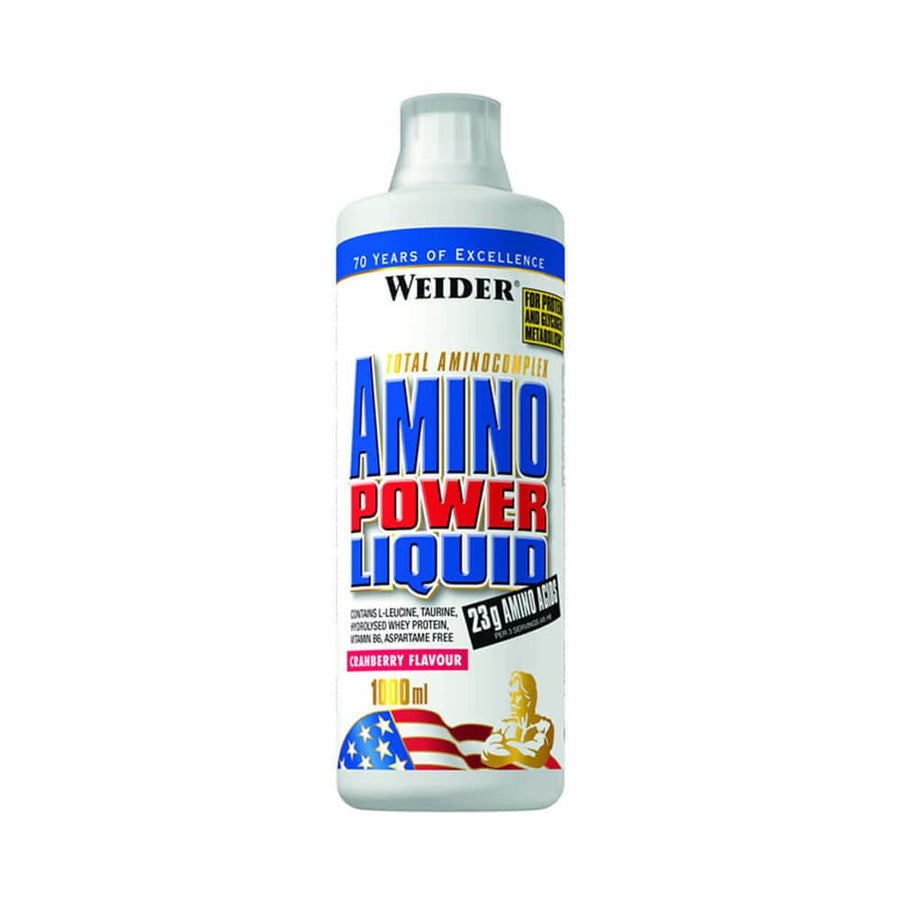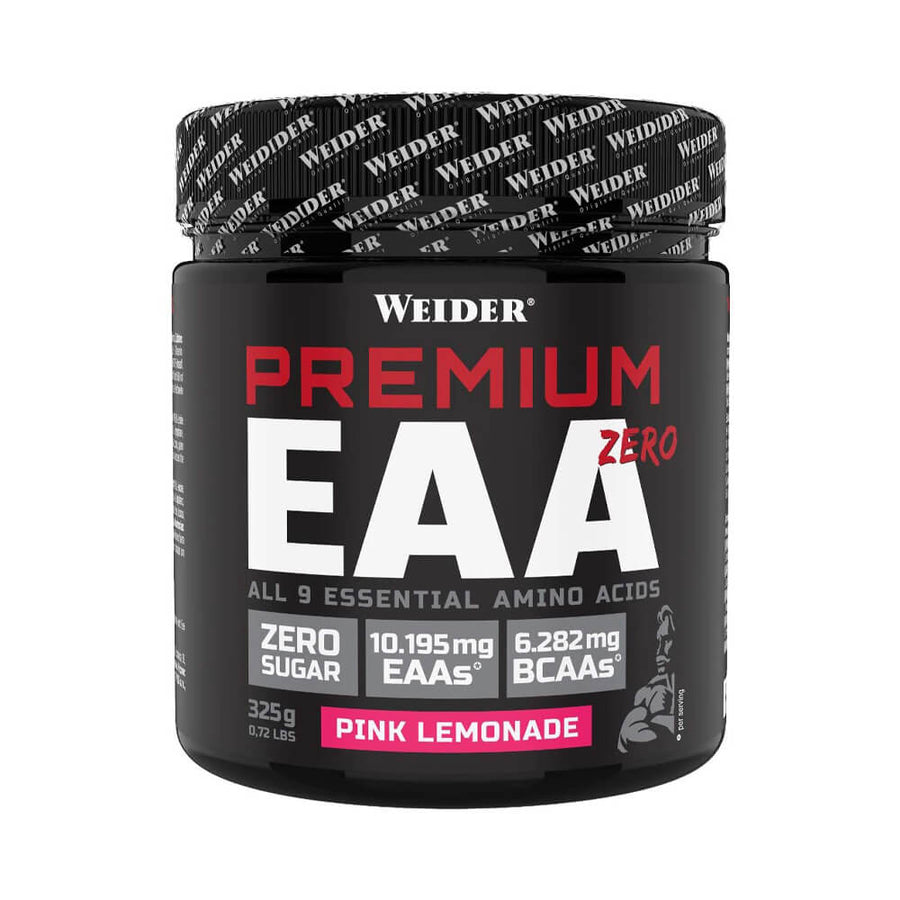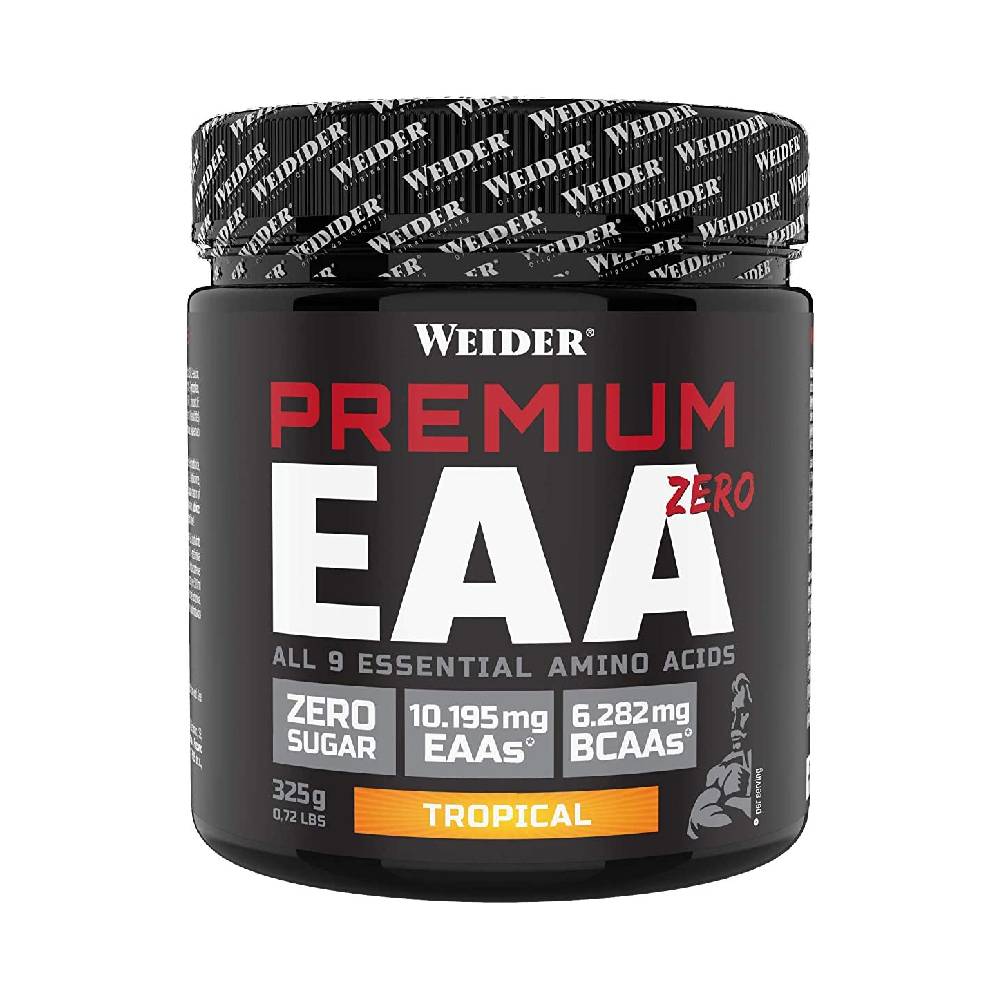Amino acids for sports endurance - the most important nutrients in the body influence the performance of athletes

You have surely heard about amino acids, but did you know that you need 20 amino acids for an iron body? Amino acids are components of other proteins or organic compounds that contain oxygen, nitrogen and hydrogen. How are amino acids classified? What are the main sources for the necessary intake of amino acids? What is their role and how much is the functioning of the body influenced by these organic compounds?
Contents:
1.1. Amino acids, the key to the immune system in the fight against diseases
2. Amino acids are NOT always produced by the body - Types and main sources of amino acids
3. What are amino acids for athletes' diet? - When are they taken to improve endurance in sports?
1. Amino acids for immunity - What are amino acids and why are they considered the "bricks" of the immune system?

Have you started a new diet and want to discover the importance of these amino acids in your body? Amino acids greatly influence the functioning of organs and athletic performance. The studies emphasize the need for a number of 20 amino acids, of which 11 are synthesized by the body, and the intake of the other 9 is ensured through food. If the body does not receive the optimal amount of amino acids, then immunity, enzyme production, and protein assimilation can be affected.
Amino acids are components of proteins, and their role is to form entire protein structures. Amino acids are of three types: essential, non-essential and conditionally essential. The essential amino acids are extracted from food, the non-essential ones are the natural result of the body, and the conditionally essential amino acids are only necessary when the body needs support to overcome stress factors or diseases.
1.1. Amino acids, the key to the immune system in the fight against diseases

Now that you have discovered what amino acids are, find out how important their role is in the optimal functioning of the human body.
- Detection of antigens
Antibodies are proteins produced naturally by the body. Their role is to identify the presence of viruses, fungi, parasites, bacteria and other disease-producing antigens.
- Enzyme production
Enzymes are macromolecules with the role of stimulating chemical reactions in the body. Enzymes are present in the blood, the gastrointestinal tract and in all cells and organs of the body.
- Excellent source of energy
Valine and isoleucine provide the body with the necessary energy to support sports training and more.
- Adjuvant for digestive function
Histamine is the key element in the digestive process, and its synthesis is produced by the existence of the essential amino acid called histidine.
- Muscular health allies
Amino acids are indispensable in the diet of athletes, due to the effects they have on muscle mass. For example, valine protects muscle functions, and leucine helps restore muscles after exercise.
- Optimal circadian rhythm
Amino acids also have a positive impact on emotional health. This organic compound neutralizes negative states, such as anxiety, nervousness or restlessness, also reducing sleep disorders and insomnia.
- Increased resistance of nails, skin and hair
The essential amino acid called lysine participates in the production of collagen, a crucial element for the general health of hair, skin and nails.
- Fat metabolism
Threonine is among the amino acids involved in maintaining a healthy body weight.
- Maintaining tone
Tryptophan is included in the production of serotonin. Therefore, this amino acid increases mental resistance to stress factors, relieving mental discomfort that can manifest itself through anxiety, panic attacks or depression.
What else do amino acids help? These organic compounds make possible the connection of nerve cells with muscle and gland cells.
To know what amino acids are good for, find out that they have the role of storing and transporting atoms and micromolecules inside the cells. For example, oxygen is transported to all organs by means of hemoglobin and with the help of iron. Iron is stored in cells thanks to the protein called ferritin.
2. Amino acids are NOT always produced by the body - Types and main sources of amino acids
As previously specified, amino acids are essential, non-essential and conditionally essential. What are they good for and how do the amino acids in each category help?
- Essential amino acids
These are the only amino acids that you can only get from food. The role of essential amino acids is to develop anabolic muscles and to prevent damage to catabolic muscles. What is their role and what are the essential amino acids?
Lysine speeds up post-accident recovery
Lysine has many essential functions for the human body. First of all, it helps to develop muscle mass, maintains the health of the bone system, helps to regulate enzymes, antibodies and hormones. Lysine accelerates the healing process after an accident or after surgery.
Histidine for tissue regeneration
Histidine is naturally produced by the body, but the quantities are too small to reach the level necessary for health. The role of these essential amino acids is to promote tissue recovery, histamine metabolism, contribute to the production of blood cells and protect nerve cell membranes.
Threonine, component of collagen and tooth enamel
Threonine helps fat metabolism, tooth strength and skin health. Did you know that threonine intake increases mental comfort by improving anxiety and depression?
Methionine purifies the body of heavy metals
Methionine increases the strength of nails, hair and improves skin health. It cleans the body from the accumulation of heavy metals and supports the synthesis process of zinc and selenium.
Valine necessary for tone regulation
Valine helps develop muscles, regenerate tissues, increase concentration and reduce agitation.
Do you know what the term BCAA amino acids means? It is short for "Branched Chain Amino Acids" and involves the formula of the three essential amino acids: isoleucine, leucine and valine. Valine, isoleucine and leucine are the top three most important amino acids that influence blood flow, lymph circulation, joint health and motor processes. They represent approximately 40% of the body's proteins and 15% of the amino acids of striated muscles.
Isoleucine and wound healing
Isoleucine normalizes blood sugar levels, enhances the healing process of injuries and regulates hormone production.
Leucine stimulates growth hormones
The role of this amino acid aims to balance glucose in the blood, the development of bone and muscle tests, as well as the healing of minor wounds. How do you recognize a person with leucine deficiency? The most obvious signs are acute states of fatigue, skin rashes or hair loss.
Phenylalanine, the brain amino acid
Phenylalanine is converted to tyrosine. Tyrosine is an essential compound for brain function. Also, this amino acid helps to synthesize proteins and enzymes in the body. How do you identify phenylalanine deficiency? As a rule, it manifests itself through states of fatigue and concentration disorders. Specialists also warn about the harmful effects that can occur through the excessive accumulation of the amino acid phenylalanine. Against the background of excess phenylalanine, episodes of insomnia and emotional discomfort with states of nervousness, irritability or anxiety can be generated.
Tryptophan and emotion processing
Tryptophan acts as an energizer, participates in the stimulation of serotonin, improves the processing of emotions and prevents digestive problems.
- Non-essential amino acids
What are the non-essential amino acids used for and what do they do for health, in addition to the essential ones? Non-essential amino acids are produced by the body. Exceptionally, they can be assimilated through food if the person suffers from a condition or a high level of stress that blocks the body from producing them naturally.
- Conditionally essential amino acids
This category actually names those non-essential amino acids that can be supplied to the body through food, if stress factors or diseases prevent the body from producing amino acids naturally. What are these?
- Alanine , the source of energy for muscles and the central nervous system
Alanine stimulates protein production, strengthens immunity and regulates blood sugar levels;
- Asparagine , crucial for brain development and protein synthesis;
- Aspartic acid and the nervous system
Aspartic acid optimizes the functioning of the nervous system and participates in the production of hormones;
- Glutamic acid forms proteins
For example, glutamic acid is converted into glutamate, which facilitates the assimilation and memorization of information.
- Conditional amino acids
They can be the result of the body's natural process, but they can also be extracted from food supplements.
- Glutamine increases muscle mass, strengthens immunity and strengthens the health of the intestines;
- Glycine participates in the production of glutathione, an antioxidant that protects cell health.
Glycine is a component of creatine, a compound that stimulates muscle energy, brain functions and protects the health of the bone system. Glycine has a calming effect, reduces sleep disorders and improves the general mood. Moreover, the amino acid is part of the collagen component, the protein with a crucial role for the health of the skin, the strength of bones and joints;
- Proline stimulates collagen production and helps to recover from minor injuries;
- Serina supports the ability to assimilate and memorize information. In addition, the amino acid calms states of agitation, contributing to the reduction of sleep disorders;
- Tyrosine has a major role in the production of dopamine, norepinephrine, epinephrine and other neurotransmitters;
- Ornithine stimulates the release of growth hormones and helps physical recovery after accidents with minor injuries;
- Arginine normalizes the level of blood pressure and prevents the symptoms associated with circulatory system disorders;
- Cysteine helps in the formation of collagen, being the protein with a vital role for the health of nails, hair and skin. Also, the amino acid has antioxidant effects and participates in muscle development.
Why are essential amino acids good? First of all, they support the development of muscle mass, improve sports performance, stimulate fat burning and help the body to rest, preventing insomnia.
Essential amino acids cannot be produced naturally by the body, so they are provided through healthy food or nutritional supplements.
What are the main sources through which you can provide your body with essential amino acids?

- Quinoa - contains an important amount of lysine, but also other essential amino acids for the body;
- Turkey meat - contains tryptophan, an essential amino acid that stimulates serotonin, also known as the hormone of happiness;
- Mushrooms - include all the essential amino acids and part of the category of non-essential amino acids;
- Salmon - is rich in Omega-3 and amino acids;
- Seeds and nuts - have an optimal amount of lysine, methionine, isoleucine, phenylalanine and histidine;
- Lentils - are recommended due to the isoleucine content;
- Dairy products - yogurt, kefir, cheeses, breast, milk;
- Wheat germs - they benefit the body thanks to the supply of threonine and tryptophan;
- Eggs - are a complete source of essential amino acids;
- Legumes - chickpeas, peas, soybeans or beans are excellent sources of lysine.
These are examples of complete sources of essential amino acids. Beans, seeds, nuts, cereals are the foods that contain only part of these amino acids, being called incomplete proteins. People who adopt a vegan or vegetarian lifestyle should consume several types of these incomplete proteins in order to provide the body with all the essential amino acids.
Of course, these are some examples of foods with a major content of essential amino acids. Athletes or people oriented towards a healthy lifestyle choose to enrich their level of essential amino acids with the help of food supplements. They are indicated for various reasons, starting from improving athletic performances, regulating sleep, optimizing the general tone and up to improving certain symptoms associated with various diseases.
3. What are amino acids for athletes' diet? - When are they taken to improve endurance in sports?
Nutritional supplements have an adjuvant role and complement a healthy lifestyle with protein foods and regular exercise. Poor diets with low amino acid content force the body to procure its own proteins by destroying its own protein structures in muscles and blood.
Food and amino acid supplements are important. Why? If the body receives too little intake of amino acids, then the assimilation of nutrients will suffer. Even the lack of an essential amino acid in the diet can lead to health problems.
The most common symptoms of essential amino acid deficiency are chronic fatigue, insomnia, digestive disorders, concentration problems, poor memory, anxiety, depression, skin problems, hair loss and even circulatory problems, obesity or malnutrition.
Amino acids are almost indispensable for body functions and general health. Are you sporty or have an active lifestyle? Find out what amino acids are good for and how they help you cope with training and competitions.
- Stimulation of muscle recovery
Specialists recommend the consumption of essential BCAA amino acids, such as isoleucine, leucine or valine. What do BCAA amino acids help? Among the important benefits are the alleviation of fatigue, muscle recovery after training or the improvement of athletic performance.
- Early healing of injuries and prevention of complications
Amino acids such as isoleucine, theronine, valine or leucine speed up physical healing both after sports injuries and after surgical interventions. Also, amino acids prevent postoperative complications caused by certain infections or water retention in the abdomen.
- Sugar level regulation
The consumption of amino acids has the ability to regulate blood sugar.
Important! Excessive consumption of amino acids can lead to unpleasant effects manifested by:
- abdominal pain;
- kidney diseases;
- hypotension;
- gout;
- diarrhea;
- gastrointestinal diseases.
As mentioned in the lines above, food supplements are an ideal option to supplement the intake of necessary amino acids, especially if you are an athlete. The supplements must be correlated with a balanced diet and can be consumed daily by observing the recommended doses. BCAA amino acid supplements can be taken as follows: 10 g before for energy, 10 g during and 10 g after training to prevent muscle fever and the feeling of hunger. Their role is to increase endurance during training and to help muscles recover after exercise. Supplements can be administered between main meals or separately.

How do you choose amino acid supplements? First of all, check the labels and opt for the versions that contain those ingredients that your body needs. To benefit from all the advantages of supplements, focus on natural products, without dyes and preservatives. You can choose between supplements in liquid, powder or solid form. Choose the option that can be administered the easiest.
Amino acids form a solid base for a perfectly functional organism. Amino acids fight stress factors, participate in quality rest, provide energy and alleviate the effects of diseases on the body. Therefore, it is not for nothing that they are considered the most important nutrients in the body. Amino acids are the basis on which all proteins develop. Since proteins influence the functions of all organs, cells and tissues in the body, it is necessary to invest resources in their key elements: amino acids.
Photo source: unsplash.com














